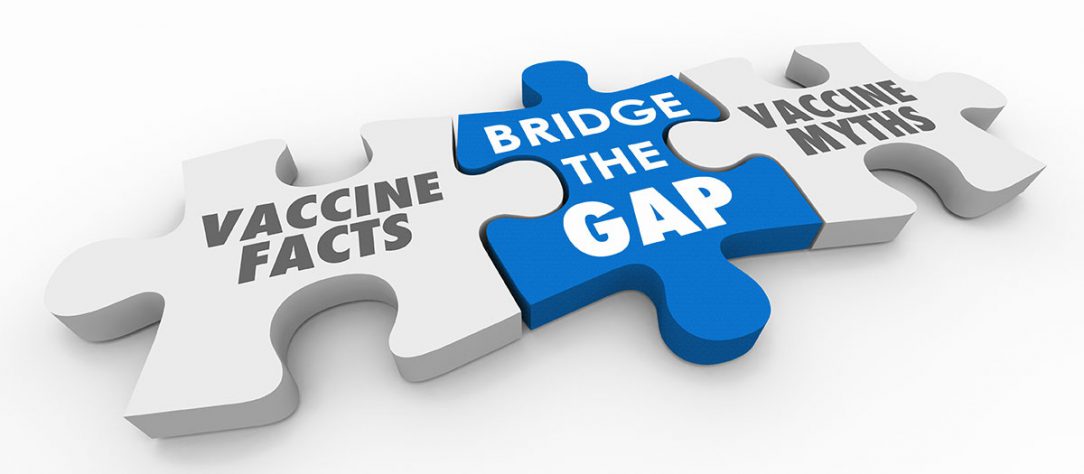COVID-19 vaccinations are now available to everyone 16 years and older in Utah. While information about the vaccines has been spreading rapidly, not all of the information is correct. Here are seven facts you should know about the vaccines:

1. COVID-19 vaccines don’t give you COVID-19
COVID-19 vaccines protect you from the virus. They don’t contain any part of the virus, so it can’t cause you to get COVID-19. Mild to moderate side effects after you get vaccinated, like a sore arm or fever, are normal and are nothing to worry about. It is very rare for people to have severe side effects after getting a vaccine.

2. Although they were developed quickly,
the COVID-19 vaccines are safe
No steps were skipped when COVID-19 vaccines were being developed. COVID-19 vaccines are new, but the technology they’re using isn’t. Scientists around the world have been working on this technology for more than a decade. Researchers, scientists, and healthcare providers from across the world worked together, shared data, and helped each other to develop and manufacture vaccines to stop the pandemic. Because of their work, it was possible to make safe and effective vaccines available very quickly.

3. The COVID-19 vaccines may protect you against more than one strain of the virus
Viruses develop small mutations, or change over time and create new strains of the virus. Data shows COVID-19 vaccines are effective against all of the strains we’ve seen so far of the virus that causes COVID-19.

4. COVID-19 vaccines don’t change your DNA
COVID-19 mRNA vaccines don’t interact with your DNA in any way. They trigger an immune response that creates antibodies to protect you from getting infected with COVID-19.

5. COVID-19 vaccines have not been linked to infertility or miscarriage
COVID-19 hasn’t caused infertility in women who’ve had the virus, so there’s no reason to think the vaccine would cause it. False information was spread online, saying that the protein in the vaccine attacks a protein in the placenta. This is not true. The small number of amino acids in the two proteins would not cause that effect.
Pregnant women or children didn’t participate in the first clinical trials, but since then thousands of pregnant and breastfeeding women have made the choice to get vaccinated for COVID-19. New studies show that the COVID-19 vaccine didn’t cause women who were vaccinated during pregnancy to have any unexpected complications during or after their pregnancy, or to their infants. It’s important to talk to your doctor about the risks of getting COVID-19. Pregnancy increases your risk for severe illness from COVID-19, and there is a chance you could give COVID-19 to your baby after he or she is born. Talk to your doctor to see if you should get vaccinated.
If you’re looking for more information, here’s a great resource with links to new studies on COVID-19 vaccinations and pregnant and breastfeeding women: https://yourlocalepidemiologist.substack.com/p/vaccine-pregnancy-data-the-latest

6. COVID-19 vaccines don’t contain microchips or tracking devices
Misinformation that COVID-19 vaccines contain microchips or tracking devices has been proven false. We know exactly what is in each vaccine. The list of ingredients in each vaccine can be found here.

7. If you have a chronic disease or condition, you should get the COVID-19 vaccine as soon as possible
If you have a chronic disease, like diabetes, you are at higher risk of severe illness from COVID-19. COVID-19 vaccines are safe and effective for people with chronic diseases or conditions.

